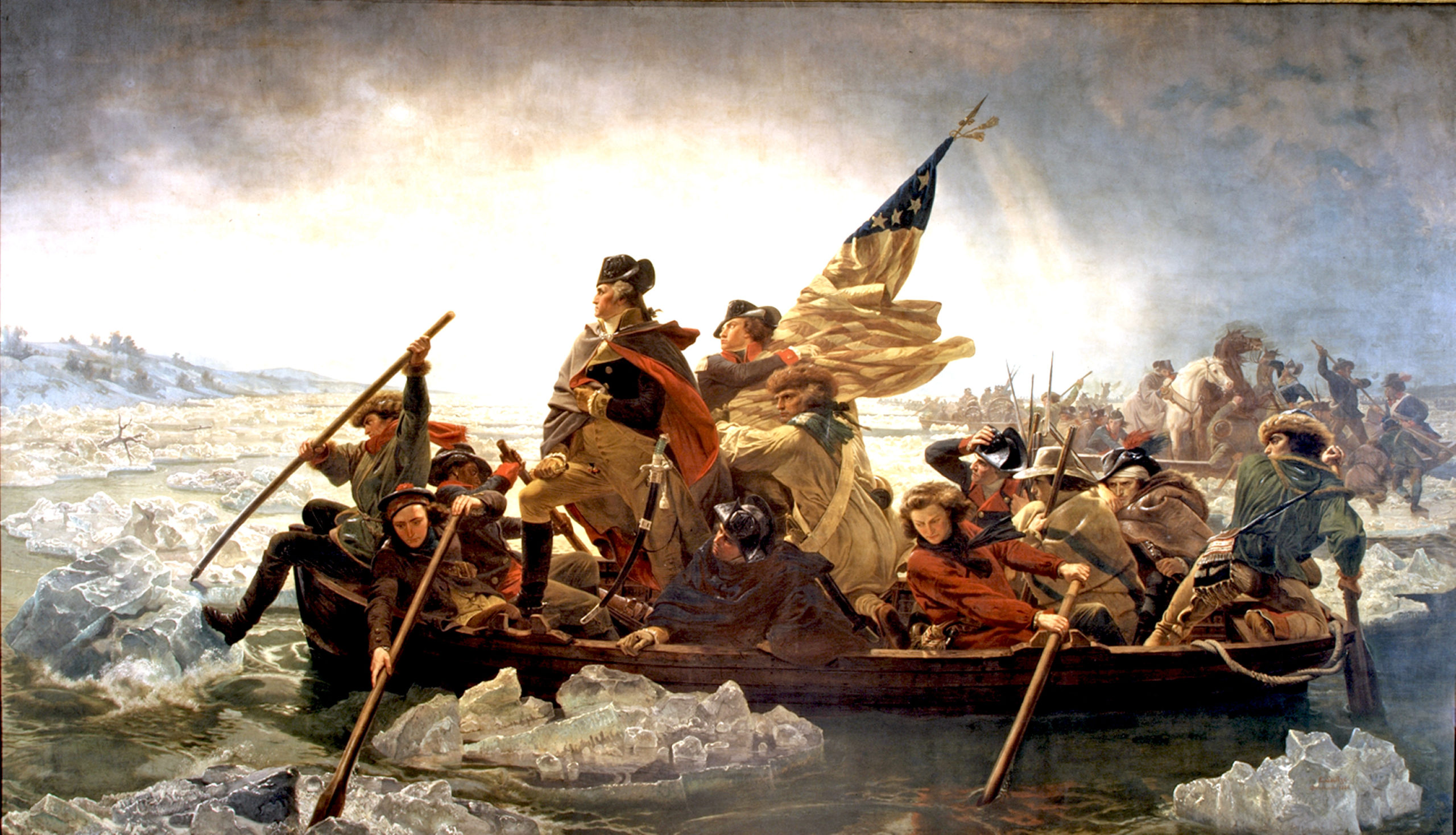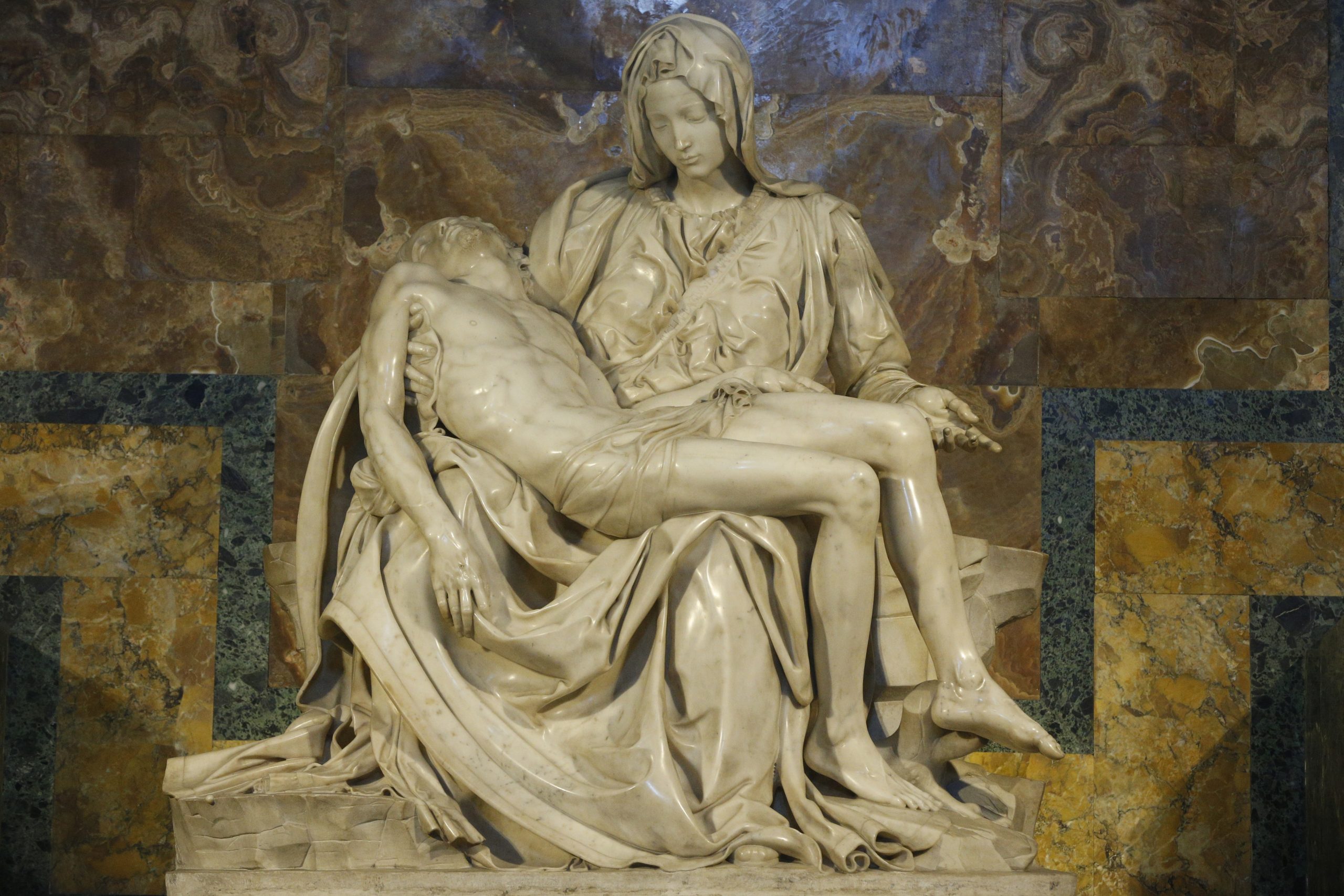More citizens are rejecting the woke gods in favor of the God of old America.
The Nakedness of God

An Advent reflection.
People get naked for lots of reasons. When they make love, or go to the doctor’s, or wash themselves; when they’re skinny dipping or sleeping or posing for a painting. In the ancient world Greek athletes stripped naked to compete, and Celtic soldiers did so to wage war. But everywhere nudity occurs it is extraordinary: even in civilizations where it is common, it is not the norm. It marks an occasion.
I do not deny that people exploit and abuse their nakedness as well as that of others. Strippers, streakers, pornographers: whatever our moral judgments may be about such people, we can see plainly that they participate in a cheapened kind of nakedness. They make use of the act so freely that it first shocks and then loses all meaning. But nakedness itself is so charged with significance that whether flippantly or reverently undertaken it commands, at least initially, a very striking power. So, too, mothers who breastfeed in public will often prefer to do so under some sort of cover—only hardline activists will disagree that a bare chest, even for good reason, entails an uncomfortable degree of vulnerability. All modern injunctions to “free the nipple” and “normalize” public nudity are hopeless for this same reason: per se, nudity is more than normal.
We cannot regard nakedness simply as nakedness because our flesh is not simply flesh. Ineluctably, our bodies and our behaviors mean more than the mere fact of themselves. As an act of expression, getting naked always means self-presentation and exposure. We say we “feel naked” when we have lost some item upon which we rely or revealed an intimate secret which we are careful to guard very closely. This is as true of a Celtic warrior as it is of a lover in the heat of passion. The warrior lays bare the raw fury of his strength in the sight of his enemies; the lover puts his most intense desires on display for his beloved; but both say of themselves: Here I am. Here is some profound and essential part of me that I have chosen this moment to unveil.
God came naked into the world. We are liable to miss this fact because it is an obvious element of a familiar story, and because the Gospels say only that Mary “wrapped Jesus in cloths” before she laid him in the manger (Luke 2:7). But of course before that, when he made his first appearance, God was naked.
He must surely have meant something by it. Jesus is how God revealed his character in human form. That is why Scripture calls Christ “the visible image of the invisible God” (Colossians 1:15): in his earthly body and life, the supreme being beyond all thought or sight encapsulated himself in the world of time and space so that we, who live there, could know him.
The beginnings of stories are important. It matters, therefore, that God began the story of himself without clothes on. He chose the language of flesh and blood because it is a language we can comprehend, so I must infer that he meant for us to understand by his nudity what we understand by all human nudity. That is, he meant to say at his birth: Here I am. Here is some profound and essential part of me that I have chosen this moment to unveil.
And like our nakedness, God’s nakedness is unusual: usually, he is clothed. Psalm 93 says that he “is clothed with majesty: The LORD has clothed and girded himself with strength.” In Psalm 104 God is “clothed with splendor and majesty” and covers himself “with light as with a cloak.” Often, assertions like this are accompanied by references to the hugeness and elegance of the natural world. Sunlight streaming through mist over clifftops, or the endlessly intricate patterning of stars on a clear night: that is the kind of garment God may be said to wear.
This is right and fitting, just as it is right and fitting for a king to wear a crown. God, who is mighty and beautiful, has chosen the mighty and beautiful things of the world to adorn himself. But kings get naked too. When they strip off their furs and their jewels, the people closest to them see their private depths. Imagine Livia with Augustus, or Catherine with Henry, or Solomon with Pharaoh’s daughter. Whatever was under the robes of those powerful men—delight, naïveté, animal lust, boyish fear—those women saw it.
Christmas was the day on which God let the rich tapestry of the clouds slip from off his shoulders and shucked the mountains from off his feet. It’s the day on which he peeled off the natural world like an undershirt and revealed what lies pulsing forever behind it all, what there is, essentially, underneath the accessories and accoutrements of grass and sea and sky.
It is something much softer and more heartfelt than we would probably have liked to believe, something small and weeping and tender: an infant child. When God pulls back his clothing to reveal the core of himself, we do not find him towering over us in furious strength. Instead we find him helplessly available, deeply and achingly in love. We find him reaching toward us with wide eyes.
There are two other moments in the Gospels when God gets naked in public, both of them moments of sorrow and passion. In mournful longing on the night before he died, Christ stripped off his clothes to wash his disciples’ feet. The next day he allowed his persecutors to strip him naked and beat him before they hung him to die on the cross. Each time he was laid bare, we saw in sharper relief who he is before and beneath everything else, beneath the planets that he spoke into being and the fabric of space-time that he stitched. Deep in the depths of it all there has always been—will always be—this naked and abiding God who is not ashamed, as we are, to make known the whole of himself. And the whole of himself is love.
The American Mind presents a range of perspectives. Views are writers’ own and do not necessarily represent those of The Claremont Institute.
The American Mind is a publication of the Claremont Institute, a non-profit 501(c)(3) organization, dedicated to restoring the principles of the American Founding to their rightful, preeminent authority in our national life. Interested in supporting our work? Gifts to the Claremont Institute are tax-deductible.
An underappreciated film showcases post-war masculine anxieties.
John Hughes’s Miracle on 34th Street remake shows that personal religious belief is always political.
"These are the times that try men's souls."
The best of the year in “show, don’t tell”
On mothers and the mother of God.






